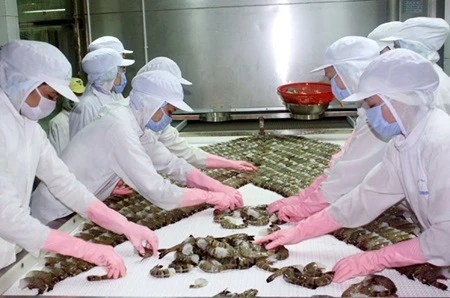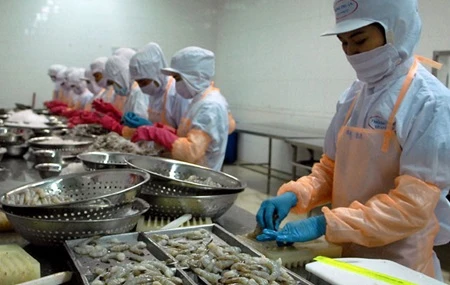China is a promising market for Vietnamese seafood exporters despite difficulties and challenges, experts said at a recent conference in Ho Chi Minh City organised by the Vietnam Association of Seafood Exporters and Producers (VASEP).
In the last five years, Vietnamese “tra” fish export to China rose by an average of 21-31 percent each year.
However, Truong Thi Le Khanh, Director of Vinh Hoan Company – one of the tra fish exporters, asserted that China is not yet a stable market.
Despite growth in tra fish export, Vietnamese enterprises have yet to carefully study the market to control price and volume, she said.
Chinese regulations also confuse Vietnamese firms, added Khanh, citing the difficulty in rules on the phosphate proportion of imported tra fish as well as unfair tax policies between official trade and border trade.
According to VASEP, China is the fourth largest consumer of Vietnam’s aquatic products, accounting for 8 percent of Vietnam’s total export volume in 2014.
Particularly, the percentage of shrimp in the total seafood export volume to China rose to 70 percent in 2014 from only 13 percent in 2003. However, in the first six months of this year, the shrimp export turnover dropped 28 percent year on year, pulling Vietnam’s total seafood export to China down by 0.8 percent.
At the same time, tra fish exports to China increased by 50.7 percent year on year to reach 70 million USD.
As of July this year, Vietnam has 623 seafood facilities allowed to ship seafood to China.
Vice Director of the VASEP Centre for Training and Trade Promotion Le Hang said traders’ increased purchases of material seafood, especially shrimp, squid and octopus, to export to China over borders have resulted in shortages of enterprises’ materials for export, affecting contracts with partners.
The situation also caused an imbalance in export structure with higher export volumes of raw material while worsening the image of Vietnamese shrimp due to uncontrolled quality, she said.
Hang added that monetary and customs policies applied by China also affect Vietnamese exporter operations.
Representatives from a number of businesses held that the promotion of Vietnamese seafood in the Chinese market remained modest and noted the lack of a long-term market development strategy.
They proposed the Government should roll out measures to unite seafood exporters to form uniformed safety standards in production and export.-VNA























